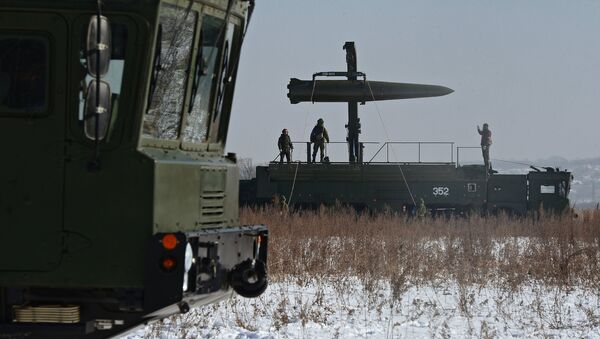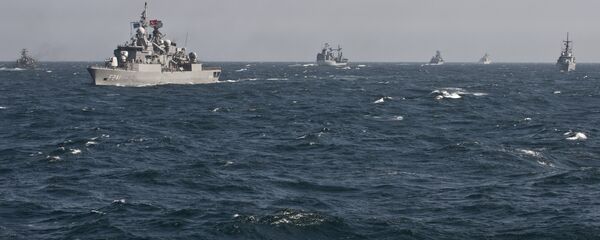"NATO maintains that [its military buildup] stems from the 'threat' emanating from Russia, something which exists only in the fevered brains of leaders in certain European nations. All recent events serve as a testament to the fact that these officials are looking for security threats to their countries and NATO in the wrong place. This is not where [security challenges] will come from. But they still don't understand this, trying instead to label Russia's deployment of Iskander systems [to Kaliningrad] as a security threat," he explained.
Moscow deployed the Iskander-M mobile short-range ballistic missile system to Kaliningrad, its exclave on the Baltic Sea, in October. The move came in response to NATO's decision to send four multinational battle groups and additional military hardware to Estonia, Latvia, Lithuania and Poland. High-ranking Russian officials have also cited a US-built missile defense system in Europe as a major concern.
Khodarenok shared these sentiments, saying that Moscow is not supposed to provide any comments on military deployments taking place on Russian territory.
"The Iskander systems are not covered by any arms control treaties. Kaliningrad is Russian territory. If a particular weapons system is not subject to any international agreements, then we are not obligated to inform NATO or any other organizations," he said.
Moscow's relations with NATO have gone into a deep freeze following the coup in Ukraine and Crimea's peaceful and democratic reunification with Russia. The bloc has blamed Moscow for what has happened in the neighboring country. Russian officials have repeatedly dismissed such claims as groundless, making every effort to resolve the Ukrainian crisis.
On March 3, General Petr Pavel, Chairman of the NATO Military Committee, called Army General Valery Gerasimov, Chief of Staff of the Russian Armed Forces, to discuss security issues, the potential restoration of military cooperation, measures aimed at incident prevention, as well as participation of NATO representatives in international activities held by the Russian Defense Ministry. This was the first high-level military contact between Russian and NATO military officials since April 2014.
The upcoming meeting of the NATO-Russia Council (NRC) is also part of this trend. Khodarenok expressed hope that the meeting would help improve relations between Russia and NATO.
"The relationship should be fostered. We need to take bilateral interests and concerns into account if they are reasonable," he said. "In fact, we have no other option than to mend the ties."
Never miss a story again — sign up to our Telegram channel and we'll keep you up to speed!



